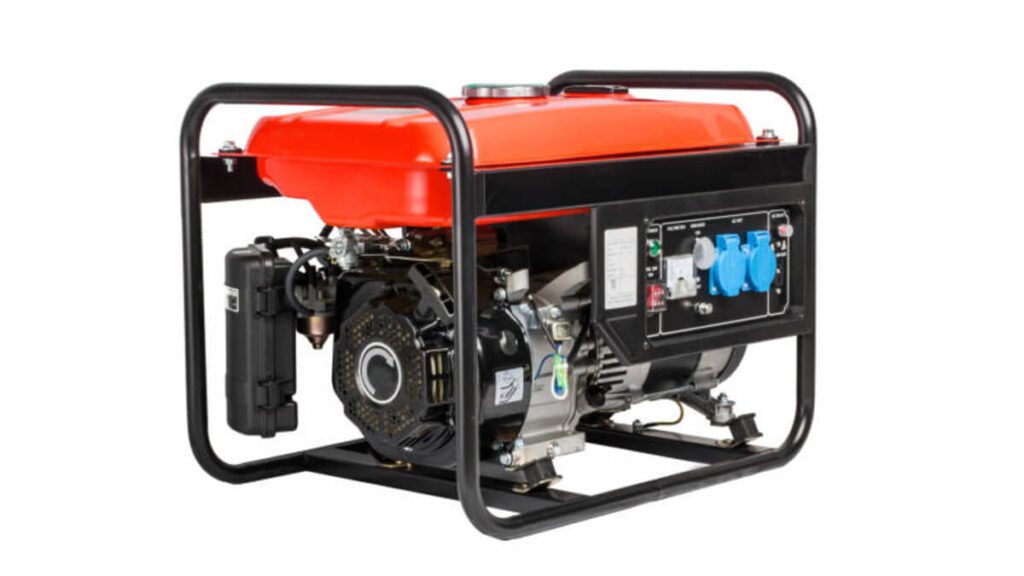Doing research is one of the actions that must be taken before making a purchase. By doing this, you ensure that you purchase the appropriate goods for your needs. Generators assist in generating electricity to make up for a lack of power or create a constant supply (emergencies).
A generator is also necessary for a variety of purposes, including comfort and commercial operations. It is a useful device and for this reason, one must keep an eye out for a few things before making a choice.
Everyone looking to buy a generator should read this blog article carefully. It serves as a checklist and a reference for significant factors to take into account while making a choice.
Also, check out Hisense Air Conditioners.
Generator
A generator is a device that generates power by converting mechanical energy into electrical energy. It typically consists of a rotor and a stator, which are the two main components of the generator. However, we will not be diving into the technical details of a generator’s operation
Furthermore, generators can be powered by a variety of sources, including fossil fuels, nuclear power, hydropower, wind power, and solar power. They are used in a variety of applications, from powering homes and businesses to providing backup power for critical systems and infrastructure.
Factors to Consider When Making Generator Purchase
For whatever reason, you need a generator, you need to consider some crucial factors. Here. The crucial factors for you to consider include:
- Power Needs
- Fuel Type
- Generator Type
- Runtime and Efficiency
- Noise Level
- Budget
Power Needs
One of the important questions to ask is, what amount of power supply do I need? The answer to the questions makes you streamline your choices and have reasonable options to consider.
It is unreasonable to get a generator and the power generated is less than your power needs. The best approach is to purchase a generator that meets the minimum requirements of the power needed.
You can determine your power consumption by taking a count of the appliances and equipment you want to power. Check and make a list of all the appliances and equipment and estimate the power input for them.
Secondly, calculate the total power consumption. Creating a list of all the appliances and equipment makes it easier to get the total consumption. Doing this gives you an overview of the power requirements of the suitable generator.
Finally, determine the starting power requirements if you have heavy appliances such as air conditioners, refrigerators, and pumps. Usually, these heavy appliances require an initial power supply before they can start working. Therefore, you need to consider this in the power consumption calculation.
Furthermore, wattage ratings are one of the factors to consider. You can check for the wattage ratings through two quantities: Rated Power and Maximum Power. These two factors will give you an insight into the generator’s power capabilities.
Rated power
The steady power output generated from the generated without overloading. It is typically expressed in watts or kilowatts (kW). Check out the value for the rated power in the generator’s specifications.
It is best to have a generator with a higher rated power value than the desired power consumption.
Maximum power
Maximum power indicates the minimum peak power supplied by a generator during a surge period. A high value indicates that the generator is capable to handle heavy devices that need starting power or surge loads.
Similarly, the maximum power has the same rating expression as the rated power(kW or W). Likewise, you can check the generator’s specifications for the value.
Fuel Type
Generators differ from each other according to their design, technology, and purpose. Another contrasting difference is the fuel type used for operation. Different types of fuel generators available in the market include the following.
Gasoline generators
Gasoline generators are the most popular type of generator. In addition, they are affordable and in great supply in the market. Ideally, they are used in cases where little power is sufficient.
Diesel generators
Diesel generators use diesel as fuel and they are efficient and reliable. In terms of efficiency, they are better off gasoline generators. Commercial and industrial buildings often use them to power large appliances and equipment.
Propane generators
These generators operate on propane gas and are popular for outdoor activities and backup power.
They are environmentally friendly compared to diesel and gasoline generators. In addition, their application can be for powering little or medium-sized appliances conveniently.
Dual-fuel generators
As the name implies, dual-fuel generators operate using propane or gasoline. It is a wise choice for those that love alternatives and can afford them.
Also, check out Buying Used Cars in Nigeria.
Diesel VS Gasoline VS Propane Generators
Diesel generators are the sturdiest and most efficient in terms of fuel consumption, but they also generate the highest levels of noise and pollutants. Gasoline generators are the least expensive option, but they are also the weakest and the least fuel-efficient.
Propane-powered generators are not as potent as diesel or gasoline ones, but they operate with less noise and fewer emissions. However, the best choice for a generator will depend on specific circumstances and requirements.
Generator Type
Technology has made it possible to have different forms and designs of generators. Not all generator uses the same technology, therefore, there are several kinds of generators available. The following are the kinds of generator-types available
Conventional generators are the most popular form of generators, which create electrical power by rotating a rotor powered by an engine. They run on gasoline, diesel, propane, or natural gas.
Inverter generators, on the other hand, are outfitted with complex electronics that convert DC electricity to alternating current power. They are more efficient, provide cleaner electricity, and operate at a lower noise level than traditional generators.
They’re often utilized for outdoor activities like camping and tailgating, as well as powering sensitive technological items.
Standby generators offer backup power to households and businesses. They are permanently implanted and turn on when the electricity is turned off.
As its name suggests, portable generators may be moved around and used in various locations.
They typically run on gasoline, diesel, or propane and are frequently used in outdoor activities, on construction sites, and as backup power in emergency situations.
To generate power, hybrid generators combine numerous technologies, such as solar panels and wind turbines, with standard generators. They are made to be longer-lasting and more environmentally friendly than conventional generators.
Finally, magnetic generators are not widely used and are still in the early phases of development. To produce electricity, magnetic fields, and magnets are needed.
Runtime and Efficiency
Both runtime and efficiency play a major role in deciding to purchase a generator. The two quantities are one of the important metrics of a generator’s performance.
The runtime of a generator indicates the total time period a generator will operate functionally if you have a full tank of fuel. A generator with a, larger fuel tank or a fuel-efficient generator has a higher runtime value. However, runtime depends on other factors such as the generator’s fuel type, engine size, load capacity, and other factors.
On the other hand, efficiency involves much electrical power it can produce from a given amount of fuel. In ideal conditions, a good generator should produce more power with less fuel intake.
However, the efficiency ratings drop with frequent use and maintenance. Nevertheless, one needs to be on the lookout for generators with greater efficiency.
It’s important to choose a generator that meets your specific needs and preferences for both runtime and efficiency. However, make your choice based on your understanding of runtime and efficiency.
Furthermore, read reviews and user feedback to get an accurate assessment of the generator’s performance. In addition, seek advice from generator technicians and relevant professionals for guidance and recommendations.
Noise Level
Generators emit noises when in operation, however, not all generators produce unpleasant noise. Noise level is an important factor to consider when purchasing a generator.
The purpose determines the kind of generator best suited for you. In a setting where noise is prohibited, using a generator with a high noise level is unwise.
Decibel rating
The decibels (dB) represent the noise level of a generator. The higher the decibel rating, the louder the generator will be. Generators typically range from around 50 dB to over 100 dB, depending on their size and design.
Quiet generators
There are specially made generators with a noise reduction feature. These generators have the capacity to operate seamlessly without producing noise. However, they are more expensive compared to conventional ones.
Distance and direction
Distance and direction can also influence the noise level of a generator. To reduce noise levels, you can place the generator farther away from buildings or residential areas.
Budget
All other factors will not come into play if you cannot afford the price tag of the generator. Eventually, your pocket will limit you as it determines the available options you can choose. As the saying goes, money gives you options.
Conclusion
It is important to carefully evaluate a number of aspects when buying a generator. Some important considerations for consumers are the type of generator, its fuel source, power output, noise level, and mobility.
The best option will rely on the buyer’s unique demands and circumstances. Each generator type offers benefits and drawbacks of its own.
By taking the time to examine these criteria and weigh the pros and drawbacks of each choice, customers can make an informed decision and purchase a generator that matches their demands and delivers reliable backup power when needed.
Before you go, check out the Most Expensive Cars in 2022.








Pingback: How to Load Prepaid Meter Tokens | EntsToday
Pingback: Prices of Sewing Machines in Nigeria | EntsToday